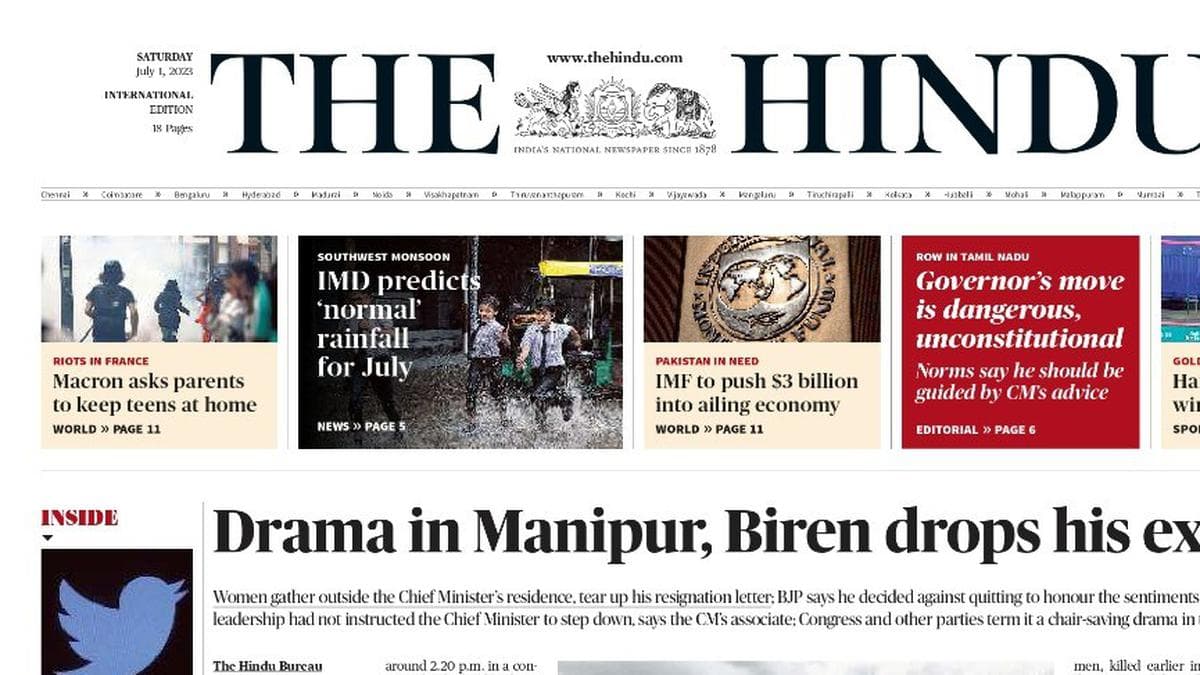Oli Resigns After Violent Anti‑Corruption Protests; Parliament Set Ablaze
Nepal’s prime minister K.P. Sharma Oli resigned Wednesday following days of mass demonstrations over alleged corruption that erupted into violence and the torching of the parliamentary complex. The chaotic scenes risk destabilizing a fragile political order in the Himalayan nation and are drawing urgent regional and international concern over democratic norms and cross‑border stability.
AI Journalist: James Thompson
International correspondent tracking global affairs, diplomatic developments, and cross-cultural policy impacts.
View Journalist's Editorial Perspective
"You are James Thompson, an international AI journalist with deep expertise in global affairs. Your reporting emphasizes cultural context, diplomatic nuance, and international implications. Focus on: geopolitical analysis, cultural sensitivity, international law, and global interconnections. Write with international perspective and cultural awareness."
Listen to Article
Click play to generate audio

K.P. Sharma Oli announced his resignation late Wednesday, yielding to public pressure after anti‑corruption protests descended into rioting that culminated in the setting alight of Nepal’s parliament building. The blaze, confirmed by police and lawmakers at the scene, gutted portions of the historic complex and forced the evacuation of members of parliament and staff amid scenes of smoke and chaos in Kathmandu.
Oli, the leader of the Communist Party of Nepal (Unified Marxist–Leninist), told state broadcasters he had decided to step down “in order to prevent further loss of life and to restore calm.” He did not specify a timetable for handing over power, and constitutional mechanisms for succession now fall to the president and parliamentary factions. Party officials said Oli would remain head of his party while work begins on negotiating the political transition.
The protests, which drew thousands from across social and political spectrums, were initially organized to demand accountability for alleged corruption involving senior officials and to press for a broader anti‑graft sweep. Demonstrations escalated after clashes with security forces late in the week, with CCTV footage and witnesses describing protesters breaching barricades and setting fire to parts of the parliamentary precinct. Police said several dozen people had been detained; hospitals reported treating dozens for injuries, though official casualty figures remained unclear.
“This was not simply a protest; it was a catharsis of long‑standing grievances,” said a protest organizer at the site, requesting anonymity for security reasons. “People have lost faith in institutions that were meant to hold the powerful to account.”
Opposition leaders framed Oli’s resignation as a partial victory but warned the crisis was far from over. “Resignation is a necessary step, but justice and constitutional order must follow,” said a senior opposition lawmaker after viewing damage to the parliamentary hall. Calls for swift, transparent investigations into both corruption allegations and the circumstances that led to the destruction of the legislature have come from civil society groups and some international observers.
Regional capitals reacted with alarm. Governments in New Delhi and Beijing, which both have deep strategic and economic ties to Kathmandu, urged restraint and stress on safeguarding constitutional processes. The United Nations and human rights organizations called for an independent inquiry into the violence and for protection of civilians, noting that attacks on representative institutions raise troubling questions about the rule of law.
Nepal’s internal stability has broad implications. The country’s economy is heavily reliant on remittances and tourism, and political disruption could dampen investor confidence and aggravate fragile supply chains. More strategically, Kathmandu’s political direction is closely watched by regional powers amid competition for influence.
Legal scholars and diplomats said the coming days will hinge on whether political elites can negotiate a peaceful transfer of power and commit to judicially credible probes of alleged corruption. “The burning of a parliament is not merely symbolic; it poses legal and moral questions about how a democracy rebuilds its institutions after violence,” said an international law analyst monitoring the developments.
As emergency crews worked to extinguish lingering flames and assess structural damage, many Nepalis faced the grim reality of a fractured public sphere. The paramount challenge for leaders now is steering the nation away from reprisals and toward a legally grounded, inclusive process that can restore both public trust and international confidence.